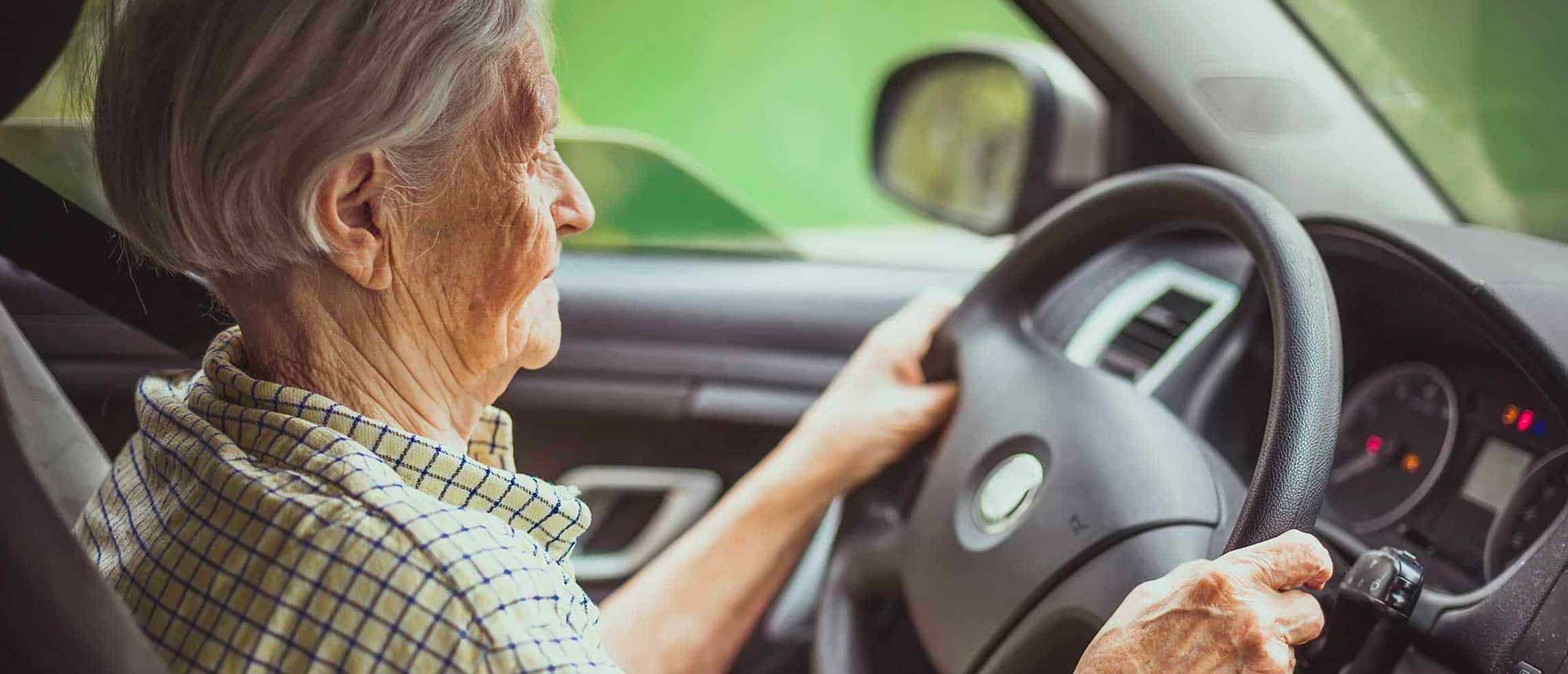11 Dec Driving Tips to Keep Seniors Safe

The percentage of licensed drivers who are age 65 and older is increasing. By the year 2029, about 1 in 4 licensed drivers will be 65 or older, according to AARP. Because of this, senior road safety is more important now than ever.
However, this isn’t because seniors are “bad drivers,” and it’s important to make this clarification. There are a handful of age-related changes seniors might be going through that might spark safety concerns about their driving. For example, hearing and vision typically decrease as people age. Even reflexes can be affected by age. Medications can also make people drowsy or dizzy, so make sure your senior doesn’t drive if they take a medication with these side effects.
Certain medical conditions can also affect a senior’s ability to drive. If your senior has vision problems—such as cataracts, glaucoma, or macular degeneration—or is diagnosed with Alzheimer’s or Parkinson’s Disease, consider alternative transportation.
At Family Tree In-Home Care, our caregivers will facilitate transportation. We also provide a program called “Ride with Family Tree,” where seniors can use Uber for appointments and outings.
Licensed drivers who are 65 and older can still remain safe on the road, so long as they practice safe driving efforts.
Try to reassure your senior and encourage them to only drive when it’s safe and when visibility is good. Discourage night driving, when possible. You can help by ensuring their is car well maintained, including oil changes, and routinely checking the car’s brakes and steering wheel.
If your senior has any physical limitations, help them make adjustments. For example, using a steering wheel cover can make it easier to turn and handle the steering wheel. Adding extra mirrors to eliminate blind spots can also help.
Be mindful if you have a loved one who is over 65 and driving. Although it can be a sensitive subject, if you notice new dents or scratches on your senior’s car, it might be necessary to talk to them about road safety.
Although aging doesn’t necessarily mean your senior’s driving days are over, it’s important to emphasize safe driving habits and open the conversation.
Sources:


